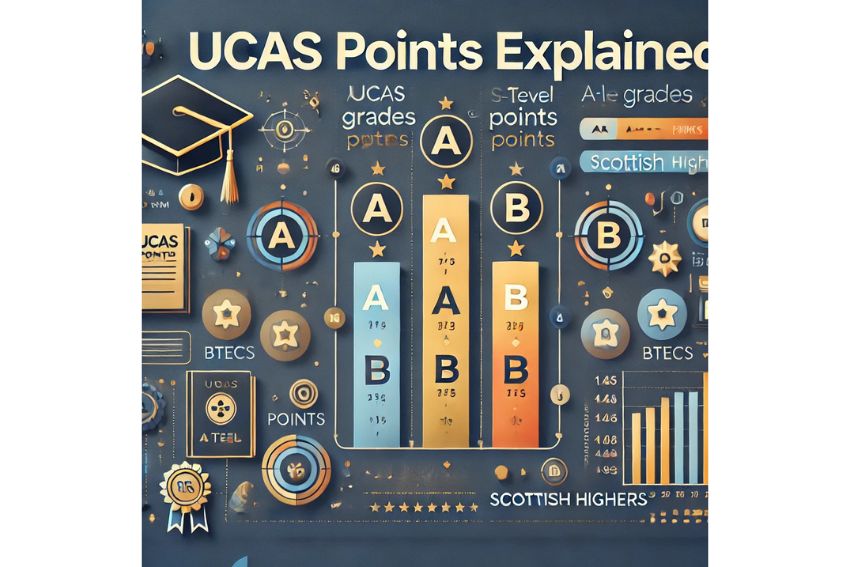GCSE History is an essential subject for any student looking to develop a deeper understanding of the world around them. It’s a rigorous exam that assesses students’ understanding of key historical events, concepts, and figures. Achieving a grade 9 in GCSE History is a significant achievement that demonstrates a high level of knowledge and understanding of the subject.
Whether you’re refreshing your revision strategies or seeking extra guidance, this guide will give you the tools to succeed and answer the key question: how to get a 9 in GCSE History. So let’s get started!
Understand the Exam Format:
Before delving into the specifics of how to achieve a grade 9 in GCSE History, it’s important to have a clear understanding of the exam format. The GCSE History exam consists of two papers, each lasting two hours. Each paper contributes 50% to the final grade, and both papers consist of a combination of source-based questions and essay questions.
Paper 1: Understanding the Modern World
- This paper covers topics such as international relations, conflict, and social change.
- It consists of three sections, each focusing on a different time period and containing a mixture of source-based and essay questions.
- This paper is worth 50% of the final grade.
Paper 2: Shaping the Nation
- This paper covers topics such as British history, political power, and protest.
- It also consists of three sections, each focusing on a different time period and containing a mixture of source-based and essay questions.
- This paper is also worth 50% of the final grade.
It’s worth noting that the exam format may vary slightly depending on the exam board, so it’s important to familiarise yourself with the specific requirements for your exam.
Understanding the weighting of each paper and how it contributes to the final grade is crucial for effective revision and exam preparation. Make sure to allocate your revision time accordingly to ensure that you’re dedicating enough time to each paper. Additionally, make sure to read the instructions carefully during the exam to ensure that you’re answering the appropriate number of questions for each section.
Now that we’ve covered the exam format, let’s move on to discussing the assessment objectives for GCSE History.
Know the Assessment Objectives

In order to achieve a grade 9 in GCSE History, it’s important to understand the assessment objectives (AOs) that your exam board will use to grade your exam. The AOs for GCSE History typically focus on four key areas:
AO1: Demonstrate knowledge and understanding of the key features and characteristics of the period studied
- This AO assesses students’ ability to recall and understand key historical events, concepts, and figures.
- Students may be asked to identify key individuals, describe important events, or explain significant social, political, or economic changes.
AO2: Explain and analyse historical events and periods studied using second-order historical concepts
- This AO assesses students’ ability to interpret and analyse historical events and concepts.
- Students may be asked to explain the causes and consequences of historical events, analyse primary and secondary sources, or evaluate different historical interpretations.
AO3: Analyse, evaluate, and use sources (including a range of primary and secondary sources) to make substantiated judgements, in the context of historical events studied
- This AO assesses students’ ability to work with primary and secondary sources.
- Students may be asked to evaluate the reliability and usefulness of sources, analyse how different sources provide different perspectives on historical events, or use sources to support a historical argument.
AO4: Analyse, evaluate, and make substantiated judgements about interpretations (including how and why interpretations may differ) in the context of historical events studied
- This AO assesses students’ ability to work with historical interpretations.
- Students may be asked to compare and contrast different historical interpretations, evaluate the strengths and weaknesses of different arguments, or develop their own interpretations based on the evidence.
To achieve a grade 9 in GCSE History, students should aim to meet the requirements of each of these AOs. This may involve tailoring your revision and exam technique to ensure that you’re addressing each AO appropriately. For example, when revising, you may want to focus on developing your skills in analysing primary and secondary sources, or practice developing and defending your own interpretations based on the evidence.
To learn more about what examiners might be looking for, make sure to do lots of GCSE history past papers.
Now that we’ve covered the assessment objectives, let’s move on to discussing some study strategies that can help you succeed in GCSE History.
Study Strategies:
Now that we’ve covered the exam format and assessment objectives, let’s discuss some study strategies that can help you succeed in GCSE History. The following techniques can help you make the most of your revision time and prepare effectively for the exam:
- Note-taking. Taking effective notes can help you retain important information and make connections between different topics. Consider using abbreviations, diagrams, and bullet points to organise your notes and make them easier to review later.
- Essay planning. Before diving into writing an essay, spend some time planning your argument and organising your ideas. This can help ensure that your essay is well-structured and addresses the question effectively. Practice outlining your essays and identifying key evidence and arguments that support your thesis.
- Revision techniques. There are many different revision techniques you can use to help you prepare for the exam. Some effective techniques include creating flashcards, practicing past paper questions, and summarising key concepts in your own words.
- Time management. Managing your time effectively is crucial during revision and the exam. Make sure to create a revision schedule that breaks down your study time by subject and topic, and allocate more time to areas that you find particularly challenging. During the exam, make sure to allocate your time appropriately for each section and question, and leave enough time to review your answers before submitting the exam. Read how to create the perfect GCSE revision routine.
Key Content Areas:

To achieve a grade 9 in GCSE History, you’ll need to have a strong understanding of the key content areas covered in the exam. The following are some of the main areas you can expect to be tested on, along with advice for how to approach each topic and what to focus on in revision:
- Medicine Through Time. This topic covers the development of medicine from ancient times to the modern era. You’ll need to understand key medical discoveries and innovations, as well as the impact of factors such as war and technology on the development of medicine. Example questions might include analysing the effectiveness of different medical treatments throughout history or evaluating the impact of scientific discoveries on medical practice. To revise effectively for this topic, focus on understanding key medical figures, concepts, and innovations, as well as the wider social, political, and economic context in which they developed.
- The Cold War. This topic covers the political and ideological tensions between the Western powers and the Soviet Union during the second half of the 20th century. You’ll need to understand the key events and factors that contributed to the Cold War, as well as the impact of the conflict on global politics and society. Example questions might include analysing the factors that led to the collapse of the Soviet Union or evaluating the impact of the Cold War on the developing world. To revise effectively for this topic, focus on developing a strong understanding of key political figures, events, and concepts, as well as the wider social and cultural context in which they developed.
- The Norman Conquest. This topic covers the events leading up to the Norman Conquest of England in 1066, as well as the aftermath of the conquest. You’ll need to understand the key players, events, and factors that led to the Norman victory, as well as the impact of the conquest on English society and culture. Example questions might include analysing the role of William the Conqueror in shaping English society or evaluating the long-term impact of the conquest on English politics and culture. To revise effectively for this topic, focus on understanding key events, figures, and concepts, as well as the wider social, political, and cultural context in which they developed.
Exam Technique
Knowing the content of the exam is important, but equally important is being able to apply that knowledge in an effective manner during the exam. The following are some exam techniques that can help you maximise your performance on the GCSE History exam:
- Reading and interpreting questions. Read the question carefully and underline the key terms and phrases. This will help you identify what the question is really asking for, and ensure that you don’t miss any important details. Look out for terms such as “analyse,” “evaluate,” and “compare,” which indicate the type of response required.
- Structuring essays. Before you begin writing, take a few minutes to plan out your essay. This can help you stay focused and ensure that you include all of the necessary information. Start with an introduction that sets out your main arguments, followed by several body paragraphs that expand on those arguments with evidence and analysis. End with a conclusion that summarises your key points and reiterates your main argument.
- Managing time effectively. Allocate your time wisely during the exam. Plan to spend equal time on each question/paper, and be mindful of the clock so that you don’t run out of time. If you find yourself struggling with a particular question, move on and come back to it later.
- Dealing with exam stress. Exams can be stressful, but it’s important to stay calm and focused. Take deep breaths and try to relax your muscles. Don’t panic if you don’t know the answer to a question – take your time and think it through. And remember, you’ve prepared well for this exam, so trust in your abilities.
Conclusion
In conclusion, achieving a grade 9 in GCSE History requires a combination of strong content knowledge and effective exam technique.
However, it’s important to remember that preparation is only one piece of the puzzle. Exam technique, time management, and stress management are also critical components of exam success. By employing these strategies, you can give yourself the best possible chance of achieving the grade you deserve.
If you find yourself struggling with any aspect of the GCSE History exam, consider seeking help from a qualified GCSE History tutor. A tutor can provide personalised guidance and support to help you overcome your challenges and achieve your goals.
We hope that this guide has been helpful to you in your preparation for the GCSE History exam. Remember to stay focused, stay calm, and trust in your abilities. Good luck!








